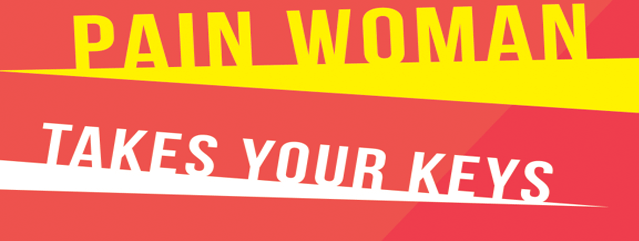Recognizing another individual’s disability may not always be straightforward, and understanding the experience of a disability can certainly be elusive. This is especially true of “invisible” disabilities that involve chronic, sometimes debilitating pain. In her book of essays Pain Woman Takes Your Keys and Other Essays from a Nervous System, author Sonja Huber addresses, in both poetry and prose, what can often be indescribable: the qualities and nature of pain itself, as well as pain’s tangible effects on life choices, relationships and work.
Ms. Huber, whose rheumatoid arthritis “and other autoimmune collapses” constrain her life, says in her poem “What Pain Wants” that “Pain resents being personified or anthropomorphized… Pain looks at you with the inscrutable eyes and thin beak of an egret… Pain puts its beaked head in its long-fingered wing hands in frustration and loneliness.”
She explains that pain is not an abstract, but rather “an experience, a process,” and also delves into the political realm, voicing her frustration with medical practitioners, her fear of dismissal and of “being branded emotional, hysterical, psychosomatic.” She dismisses the familiar 1 to 10 pain scale as useless and vividly elaborates in her own 1 to 20 pain scale her personal experiences with pain.
This book contains rare insight, irony and even humor in addressing the issue of pain and I recommend it. Two other books in the library’s collection that also deal with pain are:
You Are Not Your Pain: Using Mindfulness to Relieve Pain, Reduce Stress, and Restore Well-Being—An Eight-Week Program
DB85545
By Vidyamala Burch
Provides mindfulness-based practices that can be incorporated into daily life to help relieve chronic pain and stress of illness. Helps identify secondary suffering, brought about when the mind becomes fixated on the anxiety of pain and begins to anticipate it, thereby making it worse. Unrated. Commercial audiobook. 2015.
Living with Pain
DB13392
By Barbara B. Wolf
Describes and analyzes the experience of chronic or persistent pain. Assesses the physical and emotional consequences of pain as well as various means to deal with it. The author describes her own long struggle, and how she endured it.

